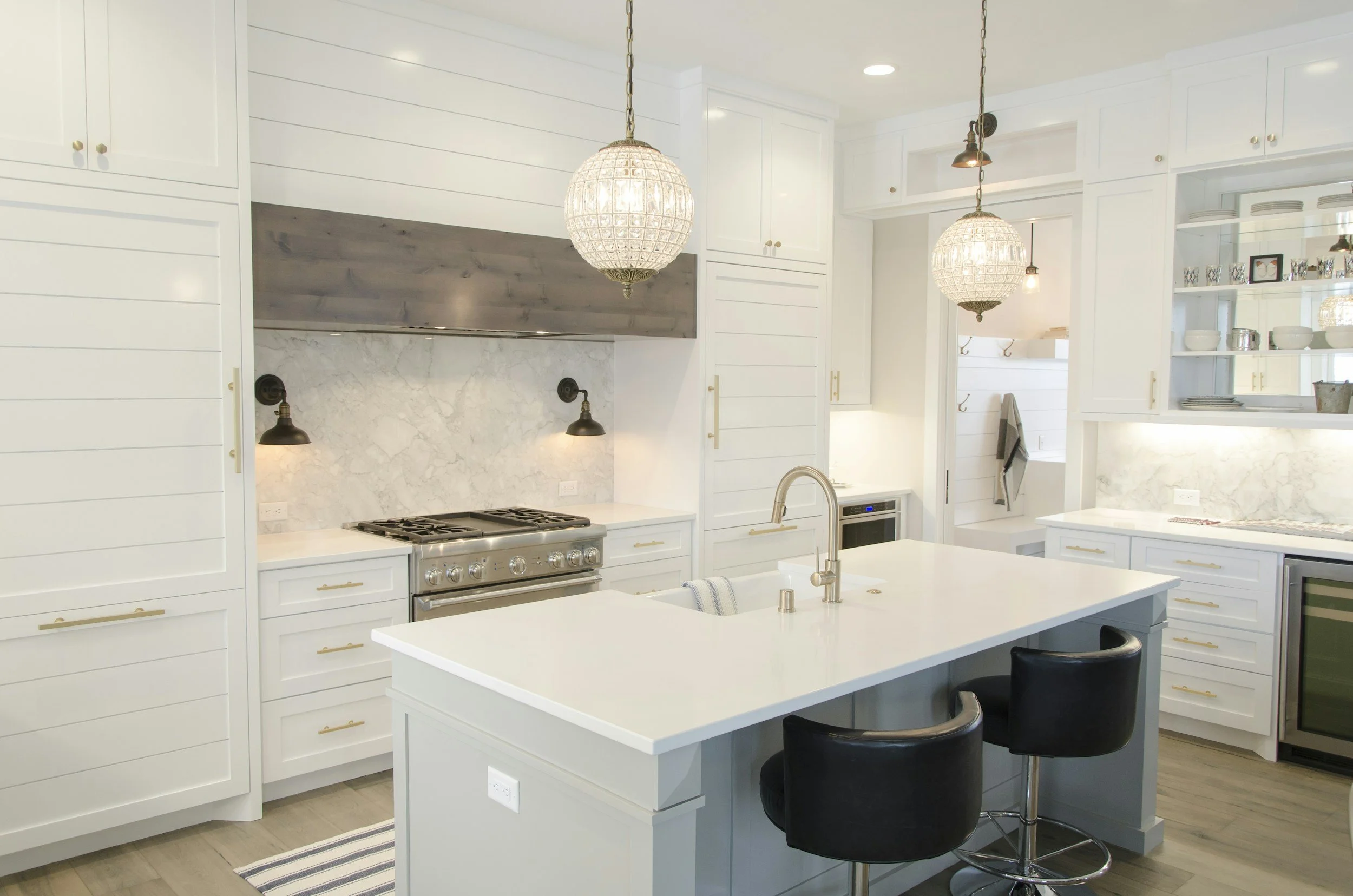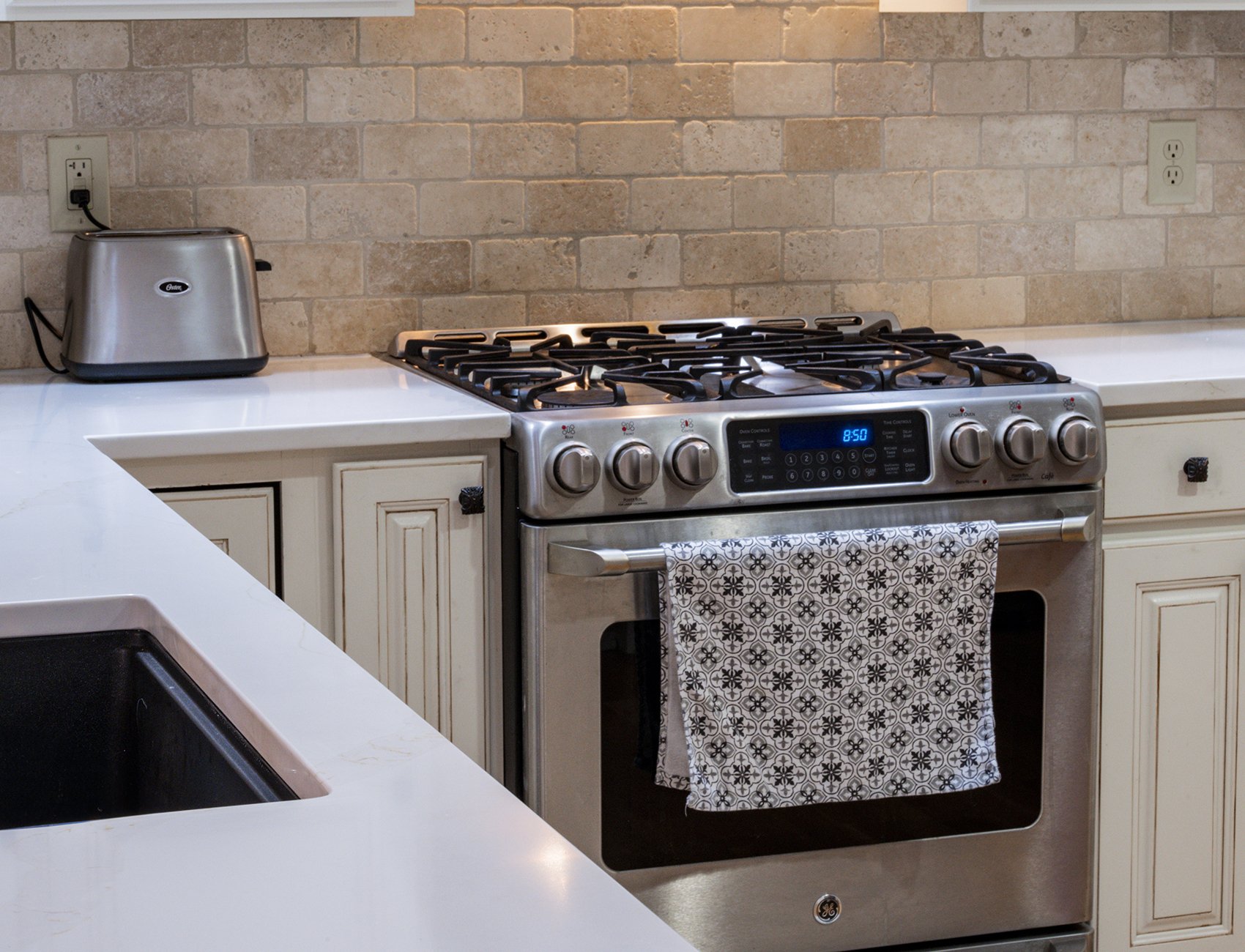Granite vs. Quartz Countertops – Which is Right for You?
Choosing the right countertop material for your kitchen or bathroom is a crucial decision. Granite and quartz are two of the most popular options, each with its own set of benefits and considerations. In this blog post, we'll explore the key differences between granite and quartz countertops to help you decide which one is right for you.
Aesthetic Appeal
Granite
Natural Beauty: Granite is a natural stone, which means each slab is unique. The natural variations and veining give granite a one-of-a-kind look.
Color Range: While granite offers a wide range of colors, the options are limited to what is available naturally.
Quartz
Engineered Consistency: Quartz countertops are engineered from crushed quartz stone mixed with resin. This process allows for a more consistent and uniform appearance.
Color Variety: Quartz comes in a vast array of colors and patterns, including options that mimic the look of natural stone, providing more design flexibility.
Durability
Granite
Heat Resistance: Granite is highly heat-resistant, making it an excellent choice for kitchen countertops.
Scratch and Chip Resistance: While granite is durable, it is not immune to scratches and chips, especially around the edges and corners.
Quartz
Non-Porous: Quartz is non-porous, making it resistant to stains, bacteria, and mold. This feature also means it does not require sealing.
Scratch Resistance: Quartz is highly durable and resistant to scratches, making it ideal for high-traffic areas.
Maintenance
Granite
Sealing Required: Granite needs to be sealed periodically to maintain its stain resistance and protect it from bacteria.
Cleaning: Granite should be cleaned with mild soap and water. Avoid harsh chemicals that can damage the sealant.
Quartz
Low Maintenance: Quartz requires minimal maintenance. It does not need to be sealed and can be cleaned with mild soap and water.
Hygienic: The non-porous nature of quartz makes it more hygienic, as it does not harbor bacteria or mold.
Cost
Granite
Variable Pricing: The cost of granite can vary widely depending on the color, rarity, and source of the stone. Some exotic granites can be quite expensive.
Installation Costs: Installation costs can also vary based on the complexity of the project and the edge profile chosen.
Quartz
Consistent Pricing: Quartz tends to have more consistent pricing, although it can be more expensive than some granite options.
Value for Money: While the initial cost may be higher, the low maintenance and durability of quartz can make it a cost-effective choice in the long run.
Making Your Choice
Both granite and quartz have their own unique advantages. Here are a few questions to consider when making your decision:
What is your budget? While both materials can be costly, granite offers a wider range of pricing options.
How much maintenance are you willing to do? If you prefer a low-maintenance option, quartz may be the better choice.
What aesthetic are you going for? If you love the look of natural stone with unique variations, granite is a great option. For a more uniform and customizable look, quartz is ideal.
What is your lifestyle? For busy kitchens or bathrooms where hygiene and durability are top priorities, quartz might be more suitable.
At Hardy Stone, we're here to help you choose the perfect countertop for your home. Visit our showroom to see our selection of granite and quartz countertops, and let our experts guide you through the decision-making process. Contact us today for a free estimate and start your journey to beautiful, durable countertops!



